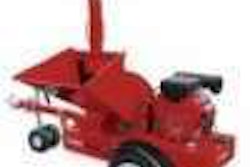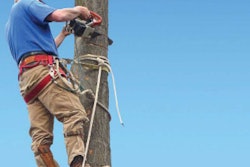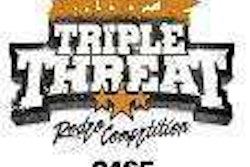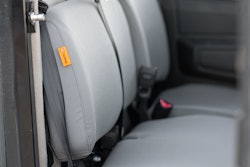From equipment write-offs to sales and use tax issues, advice from experts can save money and hassle.
Whether you prepare your taxes, have your office manager do it or contract it out to a professional accountant, you should be aware of some of the practices that could save you money, as well as help you avoid the pitfalls of honest mistakes. We interviewed industry professionals to obtain their top tips.
Beware of attractive equipment write-offs.
Charles Vander Kooi – president/owner of Vander Kooi and Associates, which specializes in business consulting for the landscape industry – likens the IRS rules on depreciation to a carrot on a string. “The government lets a contractor catch that carrot and go down the rabbit hole, but you have to be careful about eating it. They’ll yank it back out. In other words, the best you can do is defer paying taxes.” To help spike the economy, Vander Kooi says the government allows contractors to write off the purchase of new equipment (Section 179 deduction) – up to $200,000 – in the first year. “By doing that, some contractors think they’re going to avoid paying tax. In reality, they’re just deferring paying those taxes to a different year. It allows them to have the use of their money a little longer and maybe defer it to a different year when they don’t make as much money and would be in a lower tax bracket.”
However, by claiming all of the depreciation in year one, Vander Kooi points out, you will not have it in following years. “Now, if in year two, three and four your profit is less, it puts you at a lower tax rate, and that’s a plus,” he says. “But if profits are the same or even higher, then you will have lost that depreciation and will end up paying tax at a higher rate in year two, three and four. So it’s somewhat of a gamble. Pay now, or pay later. The question is, ‘Are you better off paying now because you’re in a lower tax bracket or paying later because you may have a lower profit and be at a lower rate then?’”
File your W-2s timely and correctly. “Lots of small business owners don’t keep up with the different filing dates for W-2s and 1099MISC,” says Keith Barfield, CPA with Barfield, Murphy, Shank and Smith in Birmingham, Alabama. “Employees and independent contract labor should have these in their hands by January 31.” Employees hired during 2010 who had been unemployed for 60 days qualify for a payroll tax exemption taken on Form 941. If you keep the employee for a year, you receive a New Hire Retention Credit on the federal business tax return. “The top risk from the IRS perspective would be misclassification of workers as independent contractors, when in actuality, they are employees,” he says. “If you are unclear, consider obtaining the tests the IRS uses to determine who is an employee and who is not.” (See IRS pub 1779.)
To use or not to use the use tax
“This is a new area of concern for most small businesses,” Barfield says. “Due to the pressure on the state and local governments, sales and use tax collectors are appearing everywhere. Lots of municipalities outsource their tax collections to third party agencies who seem to work on a commission basis.” Barfield says use tax typically pertains to equipment purchased via the Internet where no sales tax was paid. Equipment could be anything from a new printer to a backhoe. “Those equipment items are subject to use tax, and if you are audited, they will be caught,” he says. “Auditors go through fixed asset purchases and pick them out for targeting.” Therefore don’t forget to include these types of purchases on your sales and use tax return due each month for your state, county and city.
Don’t overlook potential deductions such as business losses and trips.
Losses can be deducted against the owner’s personal income to reduce taxes, according to AllBusiness.com, an online resource for small businesses. If your losses exceed personal income for the year, some of the year’s business losses can be used to reduce taxable income in future years.
For trips that combine business and pleasure, if more than half of a business trip is devoted to business, you can deduct the travel costs and other business-related expenses.
Most services remain exempt from sales tax, but most products are taxable.
If a business owner sells a product or service subject to sales tax, he or she must register with the state’s tax department. Taxable and nontaxable sales must be tracked and included on the company’s sales tax return. To determine if a company is liable for paying state sales tax, the IRS considers whether it has a “presence” in that state. If you have an office, warehouse or employees working for you in a state other than that of your headquarters, the IRS may consider you to have a presence in that state.
“There’s lots of confusion all around on this,” says TLC Landscaper of the Year Finalist William Dickerson, owner of Dickerson Landscaping in
Tallahassee, Florida. “For example, if I draw a landscape plan for you, the state says that is a product [therefore, taxable]. On the other hand, I did a service of creating a concept. You can’t [physically] touch the idea, so therefore it is not taxable. We use the time approach. Time is a service and it is not taxable. So we bill for time, not a plan.”
Labor is a non-taxable service, says Dan Fendley, landscape designer and arborist for Dickerson. “This means any physical estimating, designing, managing, installing or maintaining time spent on a project is, generally speaking, yours to keep. Delivery/freight charges are also items that carry no taxation charges. One thing we did was reduce mark up on plant materials, which reduced sales tax and the amount we send the IRS. In turn, we increased our labor rates [to compensate] and netted more profit.”









